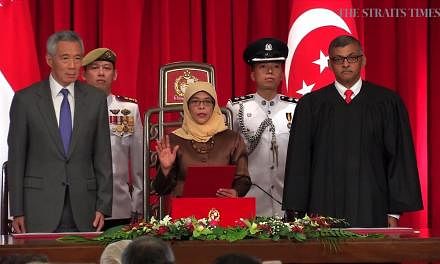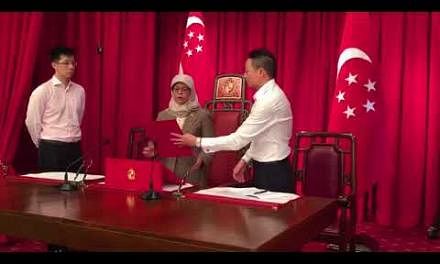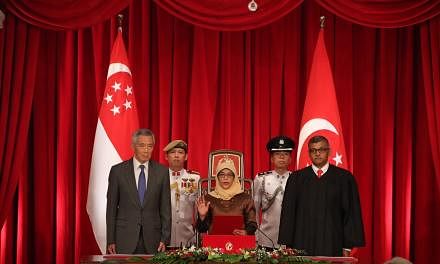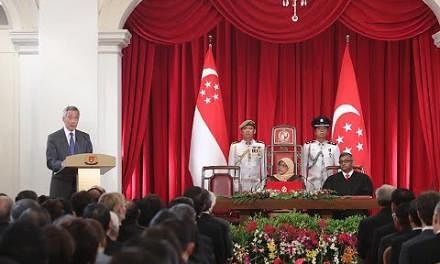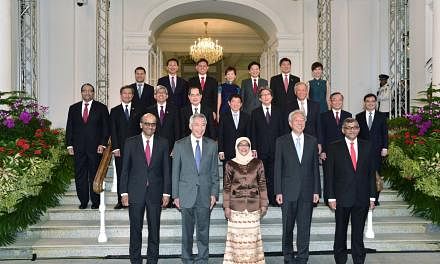In August 1954, a girl was born in her family home in Queen Street.
She was named Halimah Yacob.
Months later, Singapore held its first Legislative Assembly election. Of the 75 candidates who ran in 1955, only two were women. Both were Chinese, and both lost their contests. And of the 25 men elected, just three were Malay.
What were the odds, then, that a Malay girl, born in August 1954, could one day set foot in Parliament, become Speaker and ultimately be elected Singapore's President? Very long odds, indeed.
When Madam Halimah was sworn in as President yesterday evening, history was made.
The point is presented starkly here because there is a genuine danger we might overlook the significance of this moment - given the controversy surrounding the election.
It is important to acknowledge the controversy: There is a sizeable segment for whom an election reserved for candidates of one race is fundamentally flawed. The lack of a contest compounded the issue for this group.
The changes to the elected presidency, and the timing of the changes, have been debated. The Government has explained the need for the change. The debates will continue for a while longer.
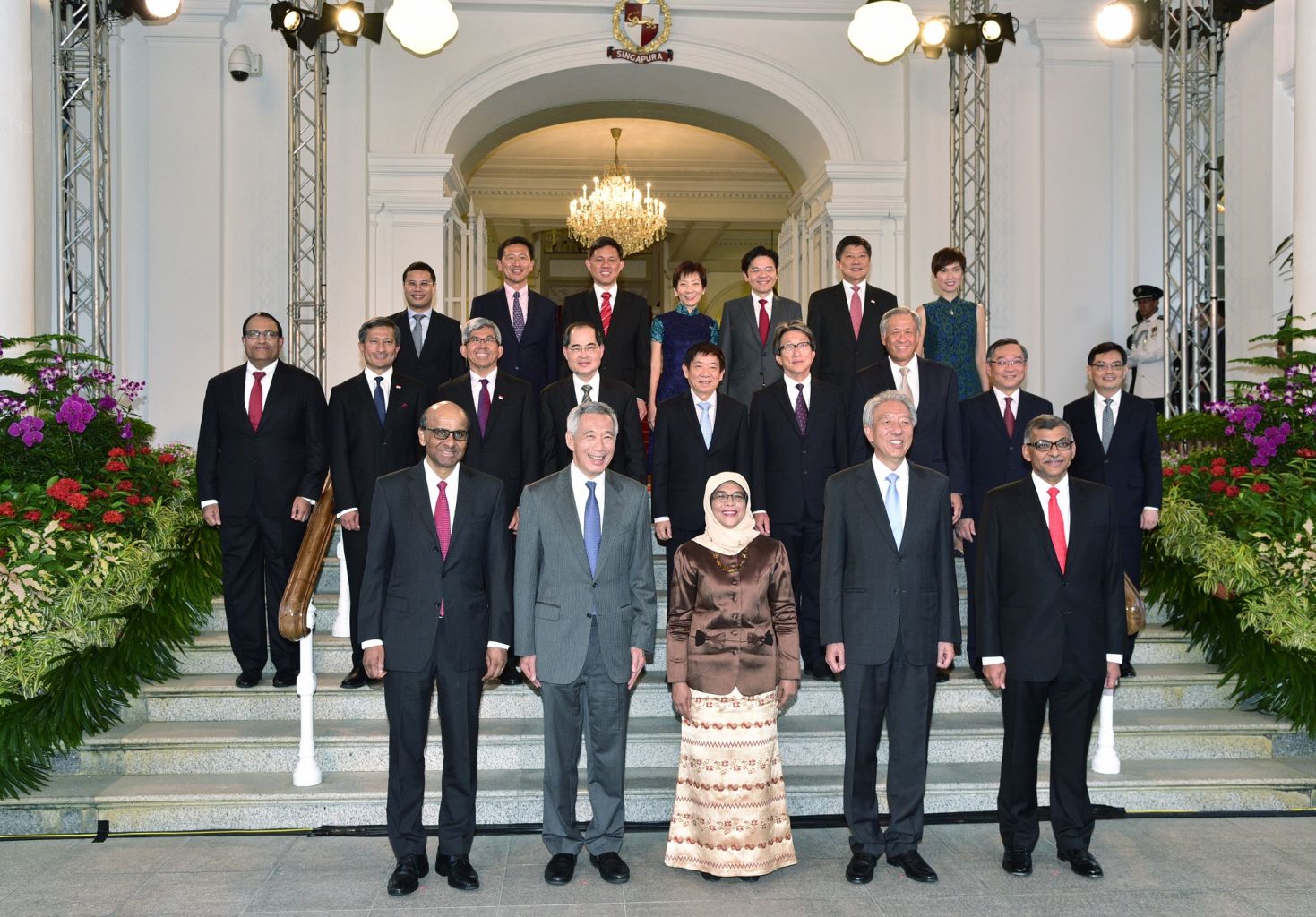
But none of this should take anything away from the momentous nature of Madam Halimah's election and her remarkable journey.
Imagine a country that makes it through the qualifiers of the football World Cup for the first time in history. Defying all predictions, it then goes all the way to the final.
In the final, after 90 minutes of nail-biting play without a goal, the referee, in the game's dying seconds, awards that country a penalty kick, in a 50-50 call that could have gone either way. The team scores. It lifts the World Cup in its maiden outing.
The contention over the penalty will not go away easily. Pundits will argue its merits, maybe for years.
But such discussions do not detract from the remarkable World Cup run achieved by that country.
And so it is with Madam Halimah's historic election.
The changes to the presidency were hotly debated, but they were also somewhat beyond her control. Indeed, she knew of the risk to her own reputation, given how some disagreed with the changes, but she chose to step forward anyway.
Madam Halimah has faced formidable obstacles at every stage of her life. She worked hard to overcome them.
Any number of things could have led to a different outcome.
She could have dropped out ofschool to supplement the income of her widowed mother, who sold nasi padang to raise five children on her own.
As a woman lawyer in a labour movement dominated by blue-collar men, she could have been taken less than seriously.
As a headscarf-donning Muslim politician, she could have found it harder to connect with the non-Muslim majority.
As Speaker of Parliament, she could have shunned the public scrutiny of a presidential run.
At each stage, her unique qualities saw her through. These included her determined nature, her personal warmth, her genuine concern for the weak and her heart to serve the public.
In a parallel universe, Madam Halimah could so easily have not become president. But she has.
Not a long time ago - as recently as 2012 - there was no woman in Cabinet. Today, there are two: Minister for Culture, Community and Youth Grace Fu and Minister in the Prime Minister's Office Josephine Teo. Now, there is also President Halimah Yacob.
As we pause to reflect on the import of this moment, we should, as a nation, challenge ourselves further: How long do we have to wait for a woman to be prime minister, or for someone from a minority race to be prime minister?
When that day comes, every child - boy, girl, Malay, Indian, Chinese, or of any race - can grow up believing that anything is possible under the Singapore sky.
Meanwhile, the fight to shatter glass ceilings continues.
The fight involves individuals waking up each morning and doing their best to realise their potential.
But the fight also involves ensuring a level playing field.
The reserved election is at times framed as a compromise of meritocracy - in order to advance multiracialism.
But if one accepts that the nature of Singapore's elections is unmeritocratic to begin with, because voters systematically discriminate against minority candidates, then affirmative action is not a compromise of meritocracy. It is in fact a desirable and necessary move to enable a truer meritocracy.
If a key role of the president is to be a unifying symbol of the nation, Madam Halimah personifies it. For she represents not just multiracialism, but also the progress of countless Singaporean women since the 1950s.
Above all, her incredible journey symbolises the journey of a country that itself overcame impossible odds to make something of its tiny existence.
As Madam Halimah begins her first full day as President today, the striving continues - for her, for millions of Singaporeans, and for this most improbable nation.


